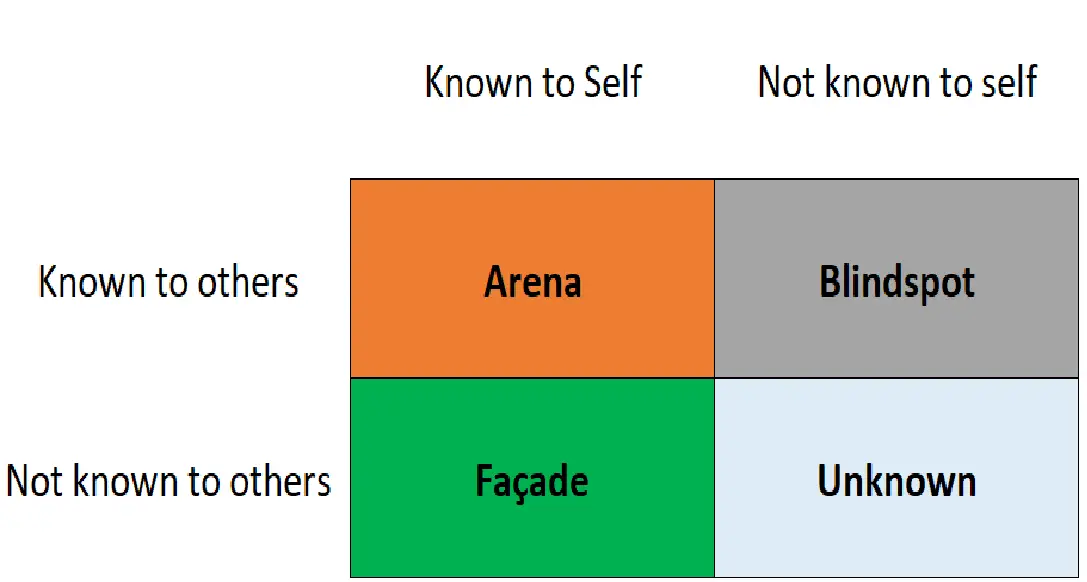The perception of the manager's role today is completely different from that which existed 30 years ago. The variety of capabilities and multitasking required by the manager leaves him little time to actually manage his employees. Is it also in the form of management today that the manager is first and foremost a leader?

How do i become a manager and a leader in my organization
Before you read - Take a minute and think for yourself
- Who is your leader?
- Think of a character who is perceived as a leader for you. why?
- Is it important for the manager to be perceived by his employees as a leader?
- What are the qualities that define a leader in your opinion?
- If you were thinking of a great athlete, an esteemed politician from the past (usually not the present), a military commander, father or mother, you probably are not alone. Most of the people I did this exercise with did not choose a manager from work.
Do employees follow me because I'm a manager or because I'm a leader?
Unfortunately, many managers now lead their employees by virtue of being given the "executive" title and not because employees believe the same person and their abilities to lead the workforce forward. If we do an experiment (which will probably not take place in reality) and get managers back from being part of the team, I'm sure that in a lot of cases they seem to become "another member or team member" and not an outstanding employee or one that the other employees trust. The reason for this is complex and i will not elaborate on it in this article, but in a short sentence - the admissions and examining processes for the managerial positions usually do not test management capabilities as they are supposed to examine. And even when the processes are working well, as you will read below - the multitude of tasks and requirements in today's work world makes it extremely difficult for managers to manage their employees thoroughly and devote the time required. Because of the demand for immediate results, many executives are re-recruiting staff who of people that are loyal to them and prefer not to mess with the existing staff of their practices.
Why do we want our manager to be a leader, but we do not hold him as such?
It's very simple to understand that times have changed. Once upon a time our manager was significantly dominant because most people worked in the same workplace all their lives. In the absence of computers, emails and technology, most communication was done over the phone or face to face.
Today, communication has become less personal and more technological: Whatsapp groups, emails and multiple conferences overlook the manager's personal and group contact with his employees. The multitasking and the stimuliation for technology had made it very difficult for managers in today's era to find the time to have real conversations with their employees.
The expectation today from a manager is that he will understand the professional field, also be a technologist and know Internet world, know his employees on a personal level and create quality communication with them. All that he needs to do while harnessing the employees to be loyal to the organization and to him as manager. Of course, this is a very high threshold that most managers do not meet, so we see a great deal of change not only among the employees but also the management levels from the junior levels to the highest levels.
10 points of difference and similarity between leader and manager
- Providing a personal example - Both a leader and a manager are required to provide a personal example. In order to be followed, the leader and the manager must lead to serve as an example. He needs to show others that this can be done. For example, a sales manager has to show how he sells. A manager of a hotel maid should show them how he expects the rooms to be tidy, etc.
- Vision - A leader will lead and instill a vision for his employees. A good manager will know how to take the vision and execute it in the field. There are many leaders who know how to instill a certain vision in employees but are unable to execute it
- Imagination - The leader will always have a wide imagination. That is, he can make his followers imagine a certain future and draw a better and different future. Imagination is the way to a vision, that is, the leader will see the way to go through the vision. The manager will make the right moves to produce the right way. Sometimes the similarity is nice, but the reality is 180 degrees. For example, many leaders in politics speak slogans and slogans but have difficulty executing them. The argument for today's leaders in politics is that today's leaders tend to speak, whereas in the past they used to
- Abstract thinking with data and numbers - The leader can speak and talk about specific events or information to engage the target audience. The manager is obliged to use real numbers, since, if he speaks approximate data, eventually the issue will be revealed and impair his credibility
- Sales vs. Learning - A good leader has always been able to sell himself and his vision. A manager will always strive to teach the knowledge required to accomplish the task
- Charisma - a trait required by most leaders. The leader will usually convey the message enthusiastically and push the people behind him. Some managers have charisma and some do not. Charisma managers are usually successful in marketing themselves and their programs to employees, but that doesn't mean they are better managers
- Understanding the environment - Leaders know how to read the external environment. The needs and desires of the majority are known to the leader and he uses them to harness the people to the common vision. Many managers have the knack for identifying environmental needs, but many do not. Some charisma and presence managers fail to "read" the environment and vice versa
- Risk Taking - Leaders are usually seen as taking more risks than managers. In practice, many executives take many risks for the success of the business
- Uncertainty - The leader will reassure his followers for periods of uncertainty while the manager must always be loyal to the organization, even if he does not always agree with the decisions made
- Loyalty to a group or organization - The dominant feature of executives in large organizations is usually to be more loyal to their business unit significantly greater than their loyalty to the organization itself. A leader will be loyal to the organization first, when its decisions take into account global impact, before impacting its business unit.
The 12 most important features of a successful manager
- Company / Business Loyalty - While this may seem obvious, some managers do not have this feature. I have encountered some cases of business owners who are not 100% loyal even to their own business. In order to be a good manager, believe in the business, in the way the organization outlines and its vision
- Positive attitude - excitement and enthusiasm is contagious. Anemics and lack of appetite are equally contagious. If you want a happy, energetic and mission-focused workforce, stick it to the "positive attitude" disease
- Time Management and Tasks - You cannot manage properly without proper time and task management. A good manager knows how to organize his day and how to divide tasks among his employees to achieve maximum effectiveness
- Hot Human Relationships - Harvard research found this to be one of the most important traits for employees. They see a "hot" person as a leader, much more than a "cold" manager. Warm relationships with employees enable openness and problem solving that significantly increases business performance
- Empathy - Being able to empathize with and develop a caring attitude towards them significantly impacts your performance as managers. This is not just a relationship, but a real ability to identify and identify with your employees' problems. Many managers provide solutions to their employees on issues that are not work related at all
- Taking responsibility - A good manager takes responsibility for his employees, goals and the way he chooses. Management and employees also know how to evaluate a manager who knows how to take responsibility when he or she is successful. A responsible manager can not only take responsibility for failure, but also find the errors and know how to fix them
- Honesty and Reliability - Your employees and managers will appreciate you much more if you are genuine with them. The lies ultimately have a tendency to "float" up. If your employee does not fit a particular task, consider it. This does not mean that you need to be direct in a way that will hurt the employee, but it is still important to understand the situation. If you have decided to assign a task to a particular employee instead of another employee and you know that it is a sensitive case, take the employee to a call and reflect on the situation. If your manager requires an answer, give him a genuine and honest answer that will reflect the real situation
- Patience - Try to remember the time when you were a beginner. Have your managers given you the time to acclimate? Did they constantly press for results or teach and educate you? It's okay to demand from your employees, but it's important to make sure you demand the right things from the right employees and give them the time to acclimate
- Don't be afraid to demand - from your manager, your employees, your counterparts. A good manager knows how to utilize the resources around him to reach his goals. Many employees report being disappointed that their manager no longer demands them. A good manager knows how to maximize his employees and push them up the performance ladder
- Flexibility - Flexibility is often seen in line with the word "fold". In practice, a good manager understands that he cannot always get what he wants. The good managers really know when to be flexible and when to stand up and not give up
- Decision Making - The job of a manager is to make decisions. Not everyone always likes the decisions we make and we don't always make the right decisions. A good manager knows how to put aside ego considerations and emotional thinking and make the best decisions for him, for the organization and for his staff
- Control capability - A good manager must oversee the processes, tasks and conduct of his employees. When a decision and work plan is implemented, the manager must have his or her eyes on the ground and make sure things are working out as planned. When the manager does not control, the processes do not go as planned
So how do you become a manager who is also a leader?
As I presented in this article, management is an acquired trait that can be worked on and improved. Leadership versus management is more difficult to improve and the biological ability we are born with has a great impact on our ability to lead. And yet a manager who really wants to be a leader and is committed to the process can certainly practice the leadership qualities we talked about and get to the point where he motivates his employees because they follow him and not because he is defined as their manager.





